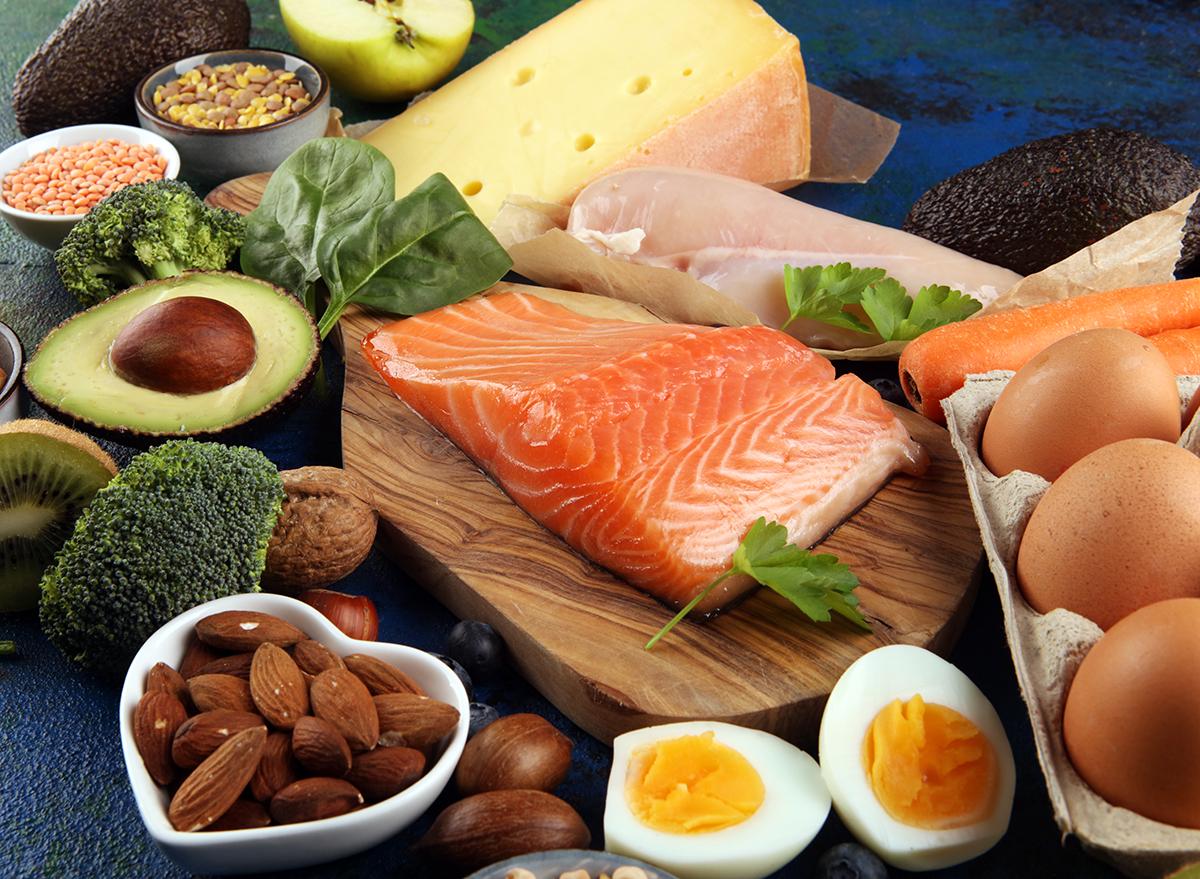
Protein is an essential macronutrient that is made up of amino acids, the compounds that help build muscle, make hormones, and even break down food. There are nine "essential" amino acids that your body doesn't produce and that you must consume from food to get a proper intake.
The base amount of protein your body needs depends on your weight, as the recommended dietary allowance is 0.8 grams per kilogram of body weight. If you're trying to gain muscle, consuming between 1.2 to 2.0 grams of protein per kilogram of body weight of protein daily is ideal.
With the amount of protein you need to eat daily, it's important to select options that provide not only enough of the macronutrient, but that can provide other benefits to your body. We spoke with two members of our Medical Expert Board, Sydney Greene, MS, RD, and Lisa Young, Ph.D., RDN, author of Finally Full, Finally Slim and The Portion Teller Plan, to discuss the best proteins that you should be eating every day. Then, make sure to check out the Surprising Effects of Eating Too Much Protein, Say Dietitians.
Eggs
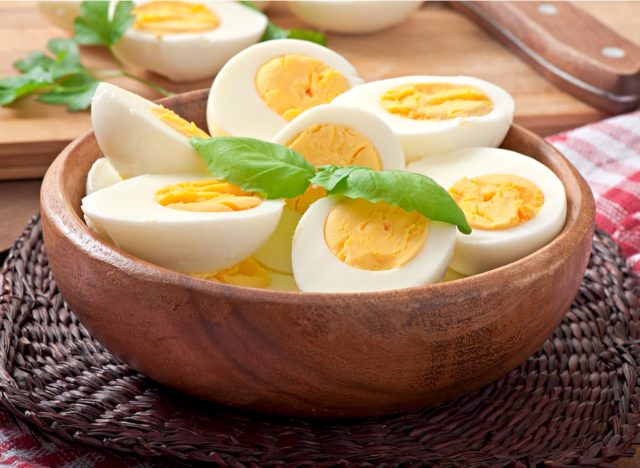
"Eggs are the most underrated source of protein," says Greene. "In addition to 6 grams of protein per egg, they contain energy-boosting vitamin B12, brain nourishing choline, and thyroid supporting selenium."
Both the egg yolk and the egg whites contain a great deal of protein. If you're looking for lean proteins, you can stick to just the egg whites.
Fatty fish
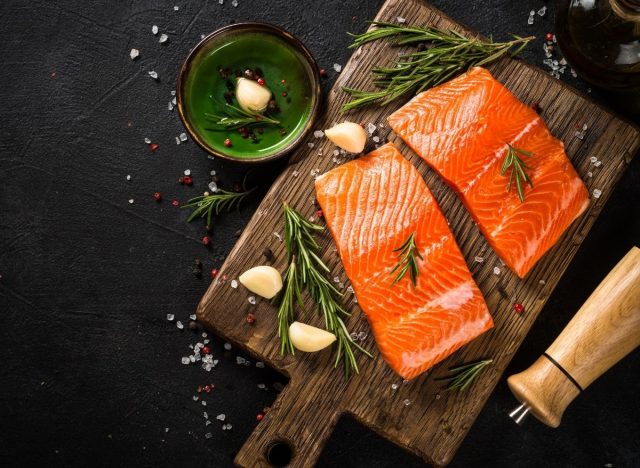
"Fish is a very good source of protein, which helps you feel full as well as regulate growth," says Young. "Yet, it is also rich in omega 3 fatty acids which can prevent blood clots and fight inflammation."
Young suggests including eating salmon in your realm of fatty fish. You can also get your intake best proteins from other oily fish like sardines and tuna.
Wild seafood
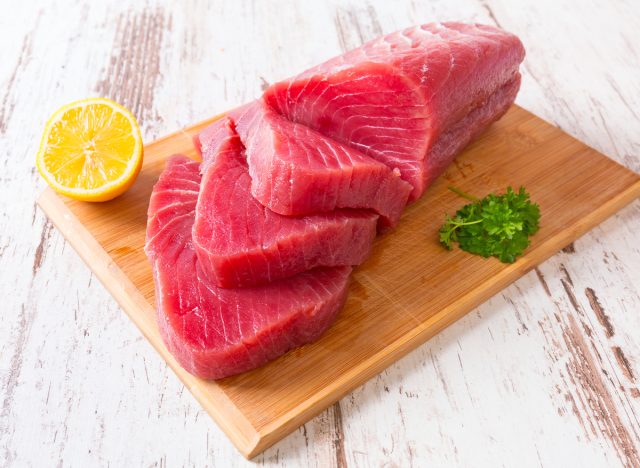
Wild seafood includes fish caught in their natural habitats, such as in rivers, lakes, or oceans. Greene advises that seafood in general is a food category that is rich in brain nourishing nutrients such as iron, b vitamins, and zinc.
"In addition to a variety of essential vitamins and minerals, fish and shellfish are excellent sources of protein and many contain omega-3 fatty acids."
Chicken breast
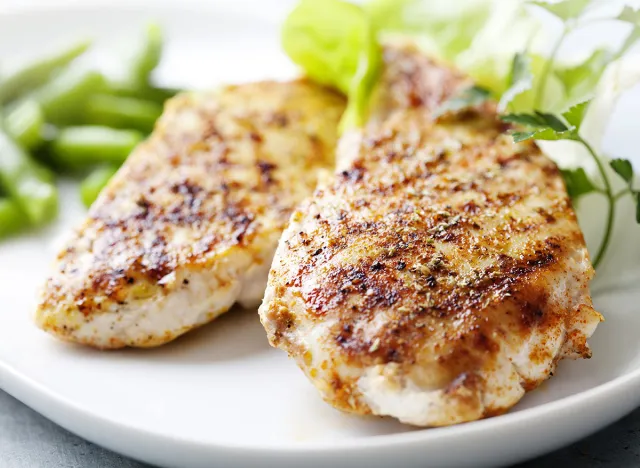
Each part of the chicken provides different amounts of protein. Young suggests that the chicken breast is where you get the best overall benefit.
"Chicken breast is a lean source of protein and is easy to prepare," says Young. "You can enjoy it grilled over greens or paired with a whole grain like brown rice and vegetable. It's also very filling and will keep you satisfied for hours."
Nuts and seeds
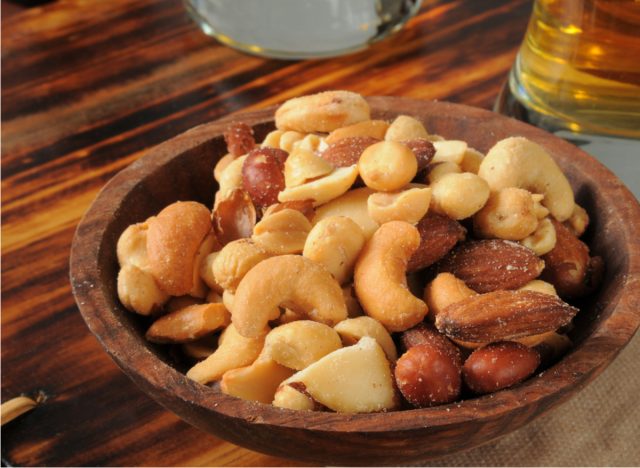
"Nuts and seeds are protein powerhouses that also contain fiber and healthy fats," says Greene. "These vegan sources of protein can be added to meals or enjoyed alone as a protein-rich snack."
Eating nuts every day not only provides you with the best proteins but also has other health-promoting benefits like potentially helping your heart and inflammation.
To choose a few for your next trail mix, some high-protein nuts include peanuts and walnuts. For seed options, add in some hemp seeds or flax seeds.
Beans
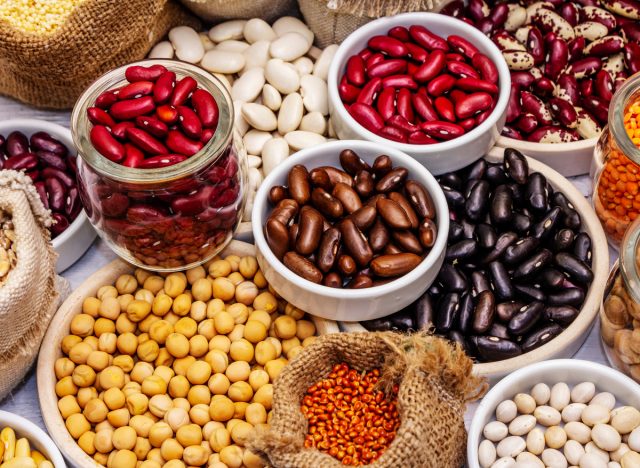
According to Young, beans are a source of plant protein that has the advantage of also being high in fiber.
"The protein plus fiber will help keep blood sugar steady," she says.
There are so many beans high in protein to choose from. Thankfully, you can get an array of these legumes that provide you with not only protein benefits but heart benefits as well.
Greek yogurt
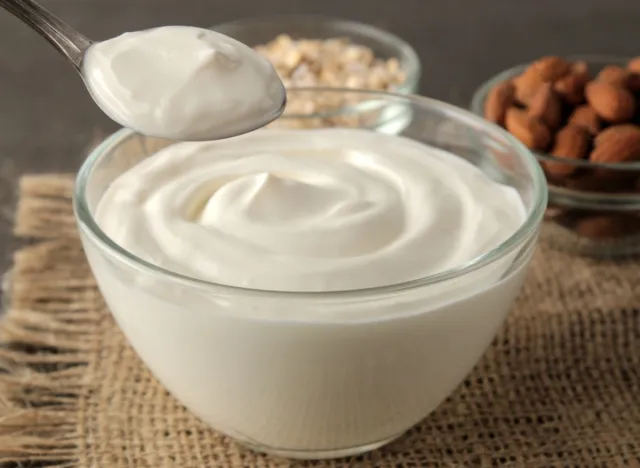
Aside from the high amounts of protein it has, Greek yogurt has many other body benefits.
"Not only does one serving of Greek yogurt contain anywhere from 15-20 grams of protein, but it is also a great source of gut-supporting probiotics," says Greene.
"Greek yogurt is rich in protein and is also a good source of calcium to help keep your bones strong," says Young. "It's a great breakfast choice and it's also portable making it a filling and healthy snack."
Greene's suggestion for the most ideal way to enjoy Greek yogurt is either plain, low, or full-fat with fresh fruit and seeds.





